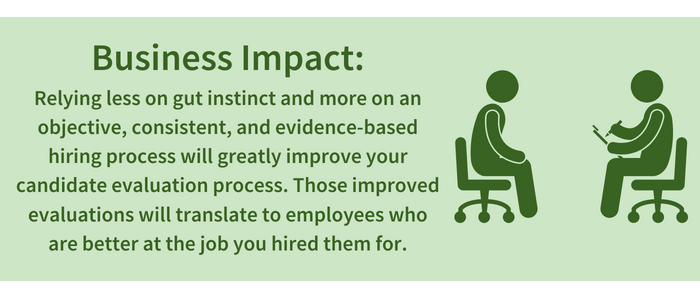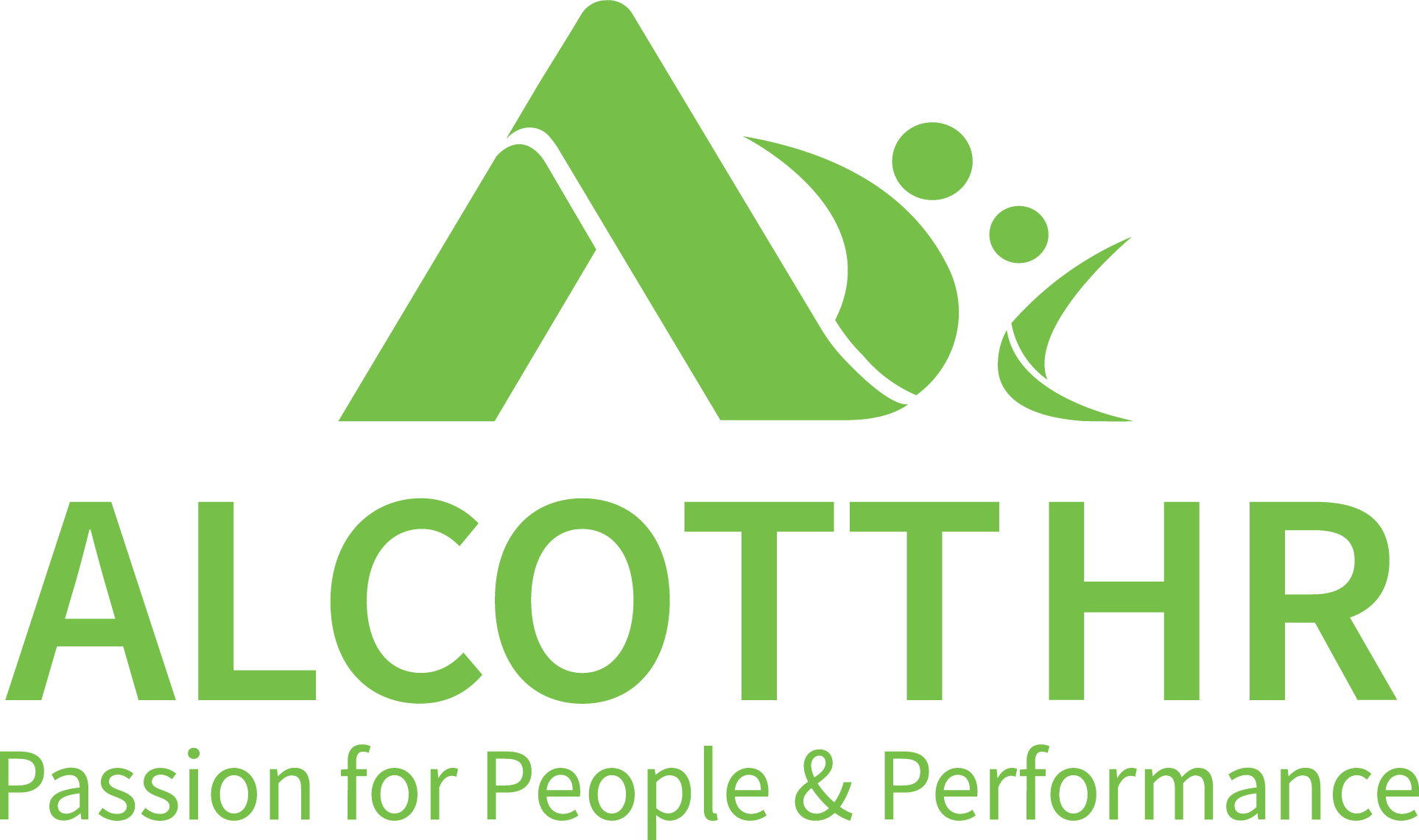Consistency or Gut Instinct? Threading the Interview Needle

Whether you call it a sixth sense, gut feeling, instinct, or intuition, it is that feeling that often has no basis in fact. We pick up on something that we can’t explain that the other person is giving off and it gives us an impression, or idea of how to proceed.
The hiring process often comes down to the emotions that arise during the interview process. Sometimes this is born out of the desperation of needing an opening filled ASAP and, in this market, when don’t we need to fill a position ASAP?
Most hiring managers say they make hiring decisions within the first five minutes of each interview, barely giving candidates time to make small talk before their fate is sealed. There is little evidence that hiring decisions based on first impressions and gut feelings are effective. It is the absence of hard data and the lack of facts and reality that make it ineffective.
How can employers keep gut feelings from running the show? Gut feelings should never be substituted for the work of obtaining information and evaluating competencies. Clear and consistent set of criteria based on patterns of success, as well as what negative patterns to avoid, is one way to keep your gut out of the driver’s seat.
Consistency in Interviews
Consistency refers to asking the same questions to all candidates for a specific position. It is a way to ensure fairness, and necessary to determine which candidate is the right one. You can only compare the quality of the responses if you have the same questions. Asking the same questions may give fewer opportunities to address the subtleties of each candidate’s background.
However, it facilitates the comparison between the candidates. Perhaps the most serious consequence of only trusting your gut is that you can end up hiring a lot of extroverts who are good at interviewing. You might think that’s a good thing, but please understand that it gives a big advantage to candidates who change jobs often and have a lot of interviewing experience.
This might be fine for a customer-facing sales role, but if that isn’t the case, you might be inadvertently increasing churn for a position that doesn’t require incredible people skills. It can also have a huge effect on diversity and inclusion. Often hiring managers feel more comfortable with people who are like them. This will limit cultural diversity and diversity of thought and may undermine innovation and creativity.
An objective, consistent, evidence-based hiring process can be an effective way to minimize biases and limit impulsive decision-making. Hiring managers will make fewer mistakes when hiring if they consistently ask the same questions, ask good questions, and evaluate candidates based on the quality of their responses. Establishing interview and hiring procedures are a best practice that will decrease discriminatory hiring practices and have a positive impact on a company’s bottom line.
No Place for Emotion?
Does this all lead to the conclusion that your gut has no place in your hiring decisions? Gut feelings can be taken into consideration after evaluating the candidate’s qualifications. Gut feelings provide meaningful clues. There may be inconsistencies in the candidate’s answers that raise red flags, or a candidate sends conflicting messages through body language, demeanor, or attitude.
These clues can tip hiring managers off to the need to ask more questions and gather more information. Experienced hiring managers use their gut in combination with an established objective, consistent, evidence-based hiring process by trusting their instincts that have developed with time and experience.
Conclusion
Often key hiring decisions are made by individuals with little or no training in how to interview or assess a candidate. Companies often don’t have a strategy or tested interview process.
As a result, decisions are often based on a gut feeling alone. Hiring managers can make the most of employment interviews and obtain the information they need with thoughtful preparation including selecting a method of interviewing, drafting useful questions, phrasing questions properly and good listening skills.
Hiring the best candidate is difficult and using the right mix of gut instinct and a set of clear and consistent criteria requires a delicate balance. When employers strike that balance the result will be more successful hiring decisions and increased retention.
An experienced Human Resource professional can be a useful resource to guide, support and provide best practices resulting in companies with better retention rates that deliver a better customer experience, hold on to top talent and are more productive resulting in increased growth and revenue.
Written by
Jacqueline Weber

